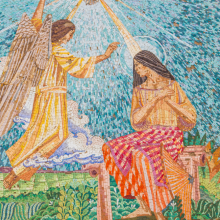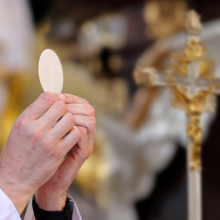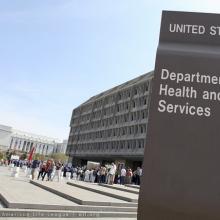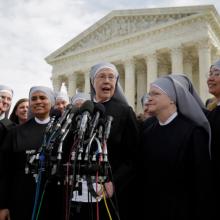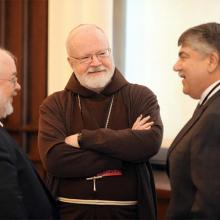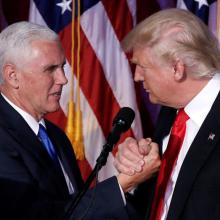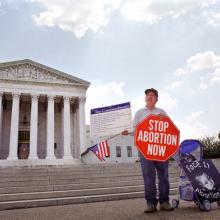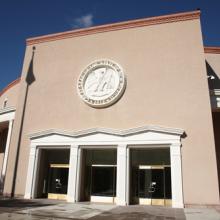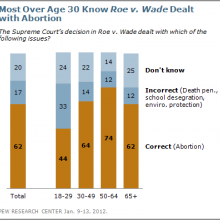abortion rights
As I observed and engaged in the multifaceted conversations about abortion, I came to a stark realization: In the story of the Annunciation, God reveals the importance of consent, agency, and women’s rights. This season of Advent presents us with the perfect opportunity to look at the Annunciation from this perspective.
An advisory group to U.S. bishops urged the Catholic leaders on Tuesday to avoid making Communion “a tool for division” as debate resurfaces in Catholic circles over whether President Joe Biden’s support for abortion rights should disqualify him from receiving the sacrament.
Gathered in a Baltimore hotel ballroom, the bishops’ conference is scheduled to discuss a draft of a document clarifying the meaning of Holy Communion, a sacrament central to the faith.
The bishops have been divided over how explicitly the document should define the eligibility of prominent Catholics like Biden to receive Communion due to political stances that contradict church teaching.
Women's, LGBTQ rights, and other physician groups have expressed concern for the heavy implications on patients' access to abortion and treating LGBTQ patients.
While not yet final, the regulation appears intended to let employers avoid providing birth control coverage if they object for any reason — an expansion of the original effort to exempt those with religious objections. As a result, abortion rights groups warn that up to 55 million women could lose free birth control coverage — something that saves them $1.4 billion annually.
The determination to not let Runkles “walk” when she completes her studies at the Hagerstown school prompted a sharp critique from Students for Life of America, which asked its supporters to urge the school to reverse its decision.
But Hobbs said the school is standing its ground about the June 2 ceremony for Runkles’ class of 15 students.
For much of its long history in the U.S., the Catholic Church was known as the champion of the working class, a community of immigrants whose leaders were steadfast in support of organized labor and economic justice – a faith-based agenda that helped provide a path to success for its largely working-class flock.
In recent decades, as those ethnic European Catholics assimilated and grew wealthier, and as the concerns of the American hierarchy shifted to battles over moral issues, such as abortion and gay marriage, traditional pocketbook issues took a back seat.
If President Obama’s appearance at the Notre Dame commencement in 2009 sparked an unprecedented uproar among American Catholics, imagine what inviting President Trump to graduation might provoke.
That concern is making Notre Dame’s president, the Rev. John Jenkins, think twice about making a pitch for the incoming U.S. president to receive an honorary degree, an appearance that almost any school would normally covet — and one that the iconic Catholic university has been more successful than others in securing.
As it is, white evangelicals made up a little more than a quarter of those who turned out to cast their ballots. And by winning 81 percent of their vote, Trump was assured the presidency.
Now, evangelicals are expecting much in return from a president-elect who did not mention God in his victory speech, who was “strongly” in favor of abortion rights until he was against them, who has said he does not believe in repentance, who has made lewd comments admitting to sexual assault.
Behind the scenes, for example, the two candidates – who couldn’t bring themselves to shake hands at the third and final presidential debate a night earlier – were brought together by the cardinal during a brief pre-dinner prayer.
“They were both icy from the beginning, you could tell,” Dolan said. “They’re not on each other’s Christmas card list, I can tell you that. You could tell those two had a rather, I’d say, frigid relationship, more than icy.”

Image via REUTERS/Kevin Lamarque/RNS
When Pope Francis became the first pontiff in history to address Congress last fall, two of the most powerful Catholics in Washington sat behind him.
Despite Americans’ shifting opinions on a range of moral and ethical issues, abortion foes have been encouraged by numbers showing that opposition to abortion rights appeared to have resisted serious slippage, and was even gaining traction.
But a Gallup poll released May 29 shows that may be changing: 50 percent of all Americans now identify as “pro-choice,” the first statistically significant lead over the “pro-life” label, which came in at 44 percent, since 2008.
The data suggest this could signal an end to the seesaw battle that has characterized opinions on abortion over the past few years.
A New Mexico lawmaker has drawn fire for proposing legislation to classify an abortion after a sexual assault as “tampering with evidence.”
Critics pounced on House Bill 206, introduced Wednesday by Republican state Rep. Cathrynn N. Brown, saying victims of sexual assault could be charged with a felony if they sought an abortion after rape or incest. But Brown said Thursday that the legislation was aimed at attackers, not victims.
“House Bill 206 was never intended to punish or criminalize rape victims,” Brown said in a statement. “Its intent is solely to deter rape and cases of incest. The rapist — not the victim — would be charged with tampering of evidence.”
“New Mexico needs to strengthen its laws to deter sex offenders,” the statement added. “By adding this law in New Mexico, we can help to protect women across our state.”
Brown said she would amend her legislation to make the intent clearer, the Albuquerque Journal reported.
When thousands of abortion opponents gather Friday on the National Mall for their annual protest march, they will be united in their fierce passion for ending a procedure that the Supreme Court legalized 40 years ago in the controversial Roe v. Wade decision.
But they will also be more divided than ever on how best to rally people to join their cause: shock them with harsh slogans and graphic images of mangled fetuses, or convince them with reasonable arguments and affecting ultrasound images.
If activists are going to the March for Life “to display graphic photos or videos of aborted babies,” Simcha Fisher wrote this week in the National Catholic Register, a conservative outlet, “I’m begging you to reconsider.”
In the past four decades, American attitudes have changed markedly on gay marriage, smoking, bullying, and a host of other cultural issues.
But on Roe v. Wade, the 1973 Supreme Court decision that legalized abortion, public opinion today looks much as it did back then.
When it comes to American views on the legality of abortion, “the trend lines look about as flat as they can be,” said Daniel Cox, research director at the nonpartisan Public Religion Research Institute.
Just a few years after the justices decided Roe, Gallup pollsters began asking Americans about abortion. In 1975, 54 percent said it should be legal only under certain circumstances; last year, that figure was virtually unchanged, at 52 percent.
And the Pew Forum on Religion & Public Life this month found that 63 percent of Americans don’t want Roe overturned, a mere 3-percentage-point increase from 1992.
In more recent years, opinions on the morality of abortion have remained similarly stable, with about half of Americans (47 percent) calling it “morally wrong” and four in 10 considering it “morally acceptable” or “not a moral issue,” according to Pew.
Four decades after Roe v. Wade, the landmark Supreme Court ruling that legalized abortion, many opponents of the decision are in a celebratory mood while those backing abortion rights are glum, feeling that momentum is turning decisively against them.
Yet in reality, little has changed in the fiercest and most protracted battle of the nation’s bitter culture war.
Instead, what’s really going on is a case study in the psychology of movement politics, where activists have to rally supporters with cries of alarm without making them despair that all is lost. At the same time, they must offer evidence that their efforts are paying off without leaving them complacent.
It’s a difficult balancing act, and lately the abortion rights camp has been the one to sound the warnings.
